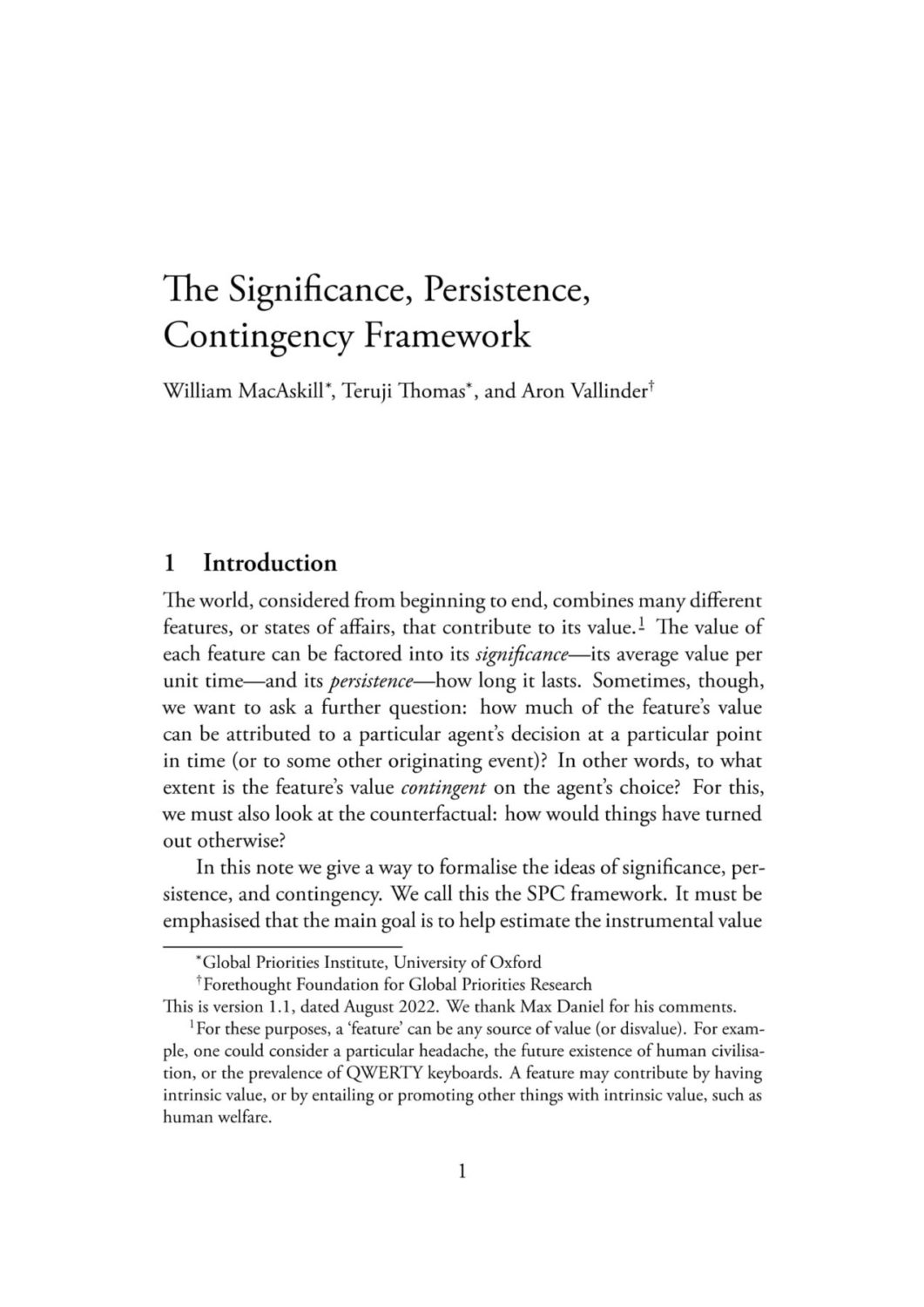The Significance, Persistence, Contingency Framework
William MacAskill, Teruji Thomas (Global Priorities Institute, University of Oxford) and Aron Vallinder (Forethought Foundation for Global Priorities Institute)
GPI Technical Report No. T1-2022
The world, considered from beginning to end, combines many different features, or states of affairs, that contribute to its value. The value of each feature can be factored into its significance—its average value per unit time—and its persistence—how long it lasts. Sometimes, though, we want to ask a further question: how much of the feature’s value can be attributed to a particular agent’s decision at a particular point in time (or to some other originating event)? In other words, to what extent is the feature’s value contingent on the agent’s choice? For this, we must also look at the counterfactual: how would things have turned out otherwise?
Other working papers
The Shutdown Problem: An AI Engineering Puzzle for Decision Theorists – Elliott Thornley (Global Priorities Institute, University of Oxford)
I explain and motivate the shutdown problem: the problem of designing artificial agents that (1) shut down when a shutdown button is pressed, (2) don’t try to prevent or cause the pressing of the shutdown button, and (3) otherwise pursue goals competently. I prove three theorems that make the difficulty precise. These theorems suggest that agents satisfying some innocuous-seeming conditions will often try to prevent or cause the pressing of the shutdown button, even in cases where it’s costly to do so. I end by noting that…
Funding public projects: A case for the Nash product rule – Florian Brandl (Stanford University), Felix Brandt (Technische Universität München), Dominik Peters (University of Oxford), Christian Stricker (Technische Universität München) and Warut Suksompong (National University of Singapore)
We study a mechanism design problem where a community of agents wishes to fund public projects via voluntary monetary contributions by the community members. This serves as a model for public expenditure without an exogenously available budget, such as participatory budgeting or voluntary tax programs, as well as donor coordination when interpreting charities as public projects and donations as contributions. Our aim is to identify a mutually beneficial distribution of the individual contributions. …
How to neglect the long term – Hayden Wilkinson (Global Priorities Institute, University of Oxford)
Consider longtermism: the view that, at least in some of the most important decisions facing agents today, which options are morally best is determined by which are best for the long-term future. Various critics have argued that longtermism is false—indeed, that it is obviously false, and that we can reject it on normative grounds without close consideration of certain descriptive facts. In effect, it is argued, longtermism would be false even if real-world agents had promising means…

